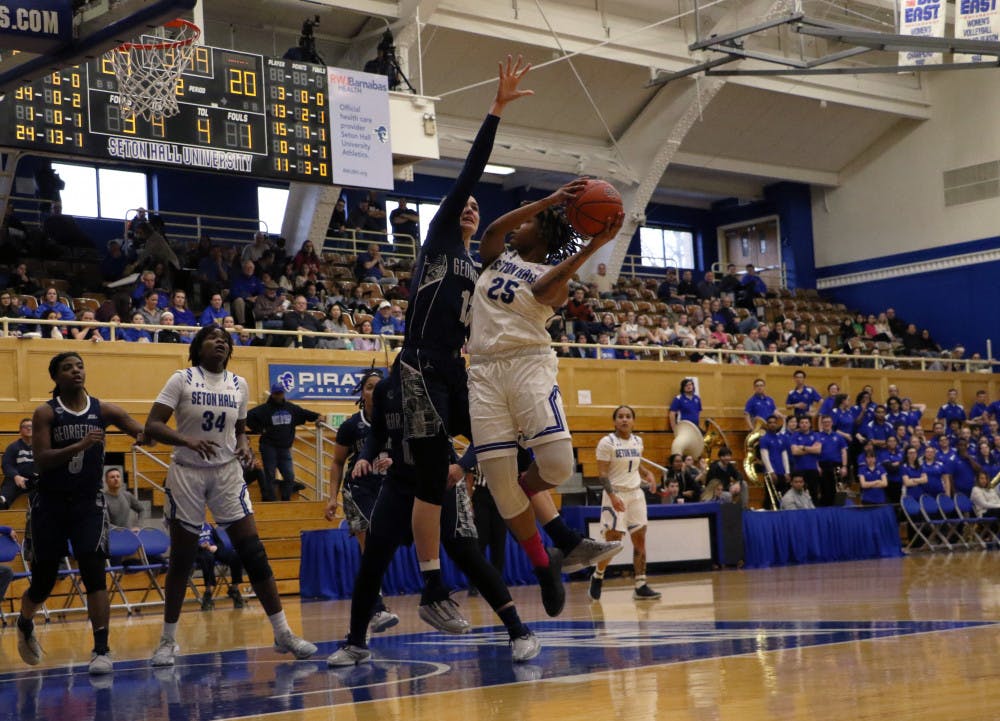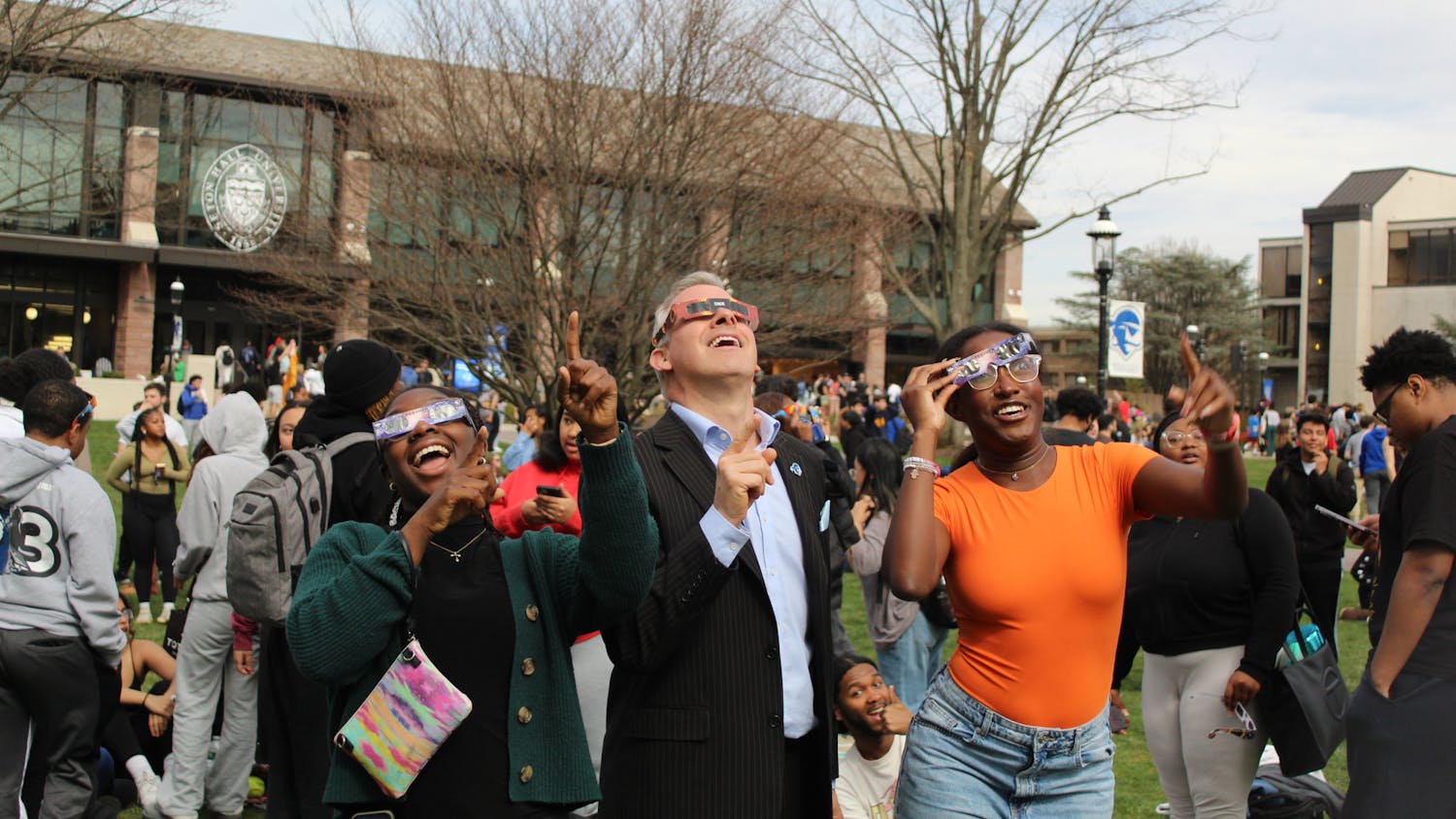[caption id="attachment_11675" align="alignnone" width="300"] Joey Khan/ Photography Editor[/caption]
The number of students seeking degrees in nursing has been growing nationwide, resulting in an influx of students with nursing degrees searching for jobs in the field.
According to The Wall Street Journal, although the number of nursing programs jumped 41 percent between 2002 and 2012 amid a widely perceived shortage of nurses, the ranks of young registered nurses swelled about 80 percent as would-be retirees stayed on the job.
Employers are seeking students with a four-year bachelor’s degree over students with a two-year associate’s degree from community colleges due to a higher level of experience from students with a four-year degree.
The Institute of Medicine, an independent advisory group, in 2010 called for 80 percent of the nursing workforce to have bachelor’s degrees by 2020, according to the Wall Street Journal report.
“Hospitals with higher proportion of nurses with bachelor’s degree scored higher on important indicators of overall quality of care,” the newspaper added.
As a result, the number of first year and transfer students in Seton Hall’s College of Nursing has been growing.
Marie Foley, dean of the College of Nursing, said that “many New Jersey hospitals will not hire nurses who do not have Bachelor of Science in nursing (BSN).
If they do, they sign a contract stating they will obtain the BSN in four to five years.”
Dean Foley said nurses are the professionals who are spending the most time with patients and need much more than the ability to perform a skill.
“They must be able to make quick clinical decision and think critically, (while) advocating for patients and communicate patients’ needs to other health professional,” Dean Foley said.
Alexandra Ebol, a junior in the College of Nursing, said she chose a four year nursing program “because that is the bare minimum a nurse is expected to have nowadays.”
“If I had gone to a community college to receive my associate’s degree, my practice would be so limited,” Ebol said. “The only place that essentially accepts those degrees are nursing or rehab homes, because nursing staff are in high demands.”
Similarly, Christian Cortes, a junior in College of Nursing, said that “the associate’s degree is quickly being phased out by some health care facilities.”
Consequently, like Ebol and Cortes, Oksana Varshavsky, another junior, said she would “rather dive right in immediately and get (my) Bachelor’s, which (will) give much more options, opportunity, and better pay.”
Jacqueline Maginnis, assistant director of the Career Center, said that in order to be well equipped
after graduation, students should develop a resume that emphasizes their experiences and skills.
“Nurse recruiters look for leadership activities on students’ resumes, whether that is involvement on campus, (in the) community or at a health care facility,” Maginnis said.
“There are many opportunities for nursing students, such as “the Student Nurses Association, American Association for Men in Nursing…volunteering at a hospital (or) applying for Certified Nursing Assistant positions.”
Nursing students with BSN could also “either specialize in certain departments or even achieve a higher degree to gain a higher scope of practice,” Ebol said.
Varshavsky and Cortes plan to further their education in graduate school.
“I have been debating between ER, ICU, and even military. I plan to get my master’s at some point when I know what I want to concentrate in,” Oksana said.
Cortes said, “I plan to work in an intensive care unit for a couple of years, then move forward into (further) education to become a nurse anesthetist.”
Diana Kim can be reached at diana.kim@student.shu.edu
Joey Khan/ Photography Editor[/caption]
The number of students seeking degrees in nursing has been growing nationwide, resulting in an influx of students with nursing degrees searching for jobs in the field.
According to The Wall Street Journal, although the number of nursing programs jumped 41 percent between 2002 and 2012 amid a widely perceived shortage of nurses, the ranks of young registered nurses swelled about 80 percent as would-be retirees stayed on the job.
Employers are seeking students with a four-year bachelor’s degree over students with a two-year associate’s degree from community colleges due to a higher level of experience from students with a four-year degree.
The Institute of Medicine, an independent advisory group, in 2010 called for 80 percent of the nursing workforce to have bachelor’s degrees by 2020, according to the Wall Street Journal report.
“Hospitals with higher proportion of nurses with bachelor’s degree scored higher on important indicators of overall quality of care,” the newspaper added.
As a result, the number of first year and transfer students in Seton Hall’s College of Nursing has been growing.
Marie Foley, dean of the College of Nursing, said that “many New Jersey hospitals will not hire nurses who do not have Bachelor of Science in nursing (BSN).
If they do, they sign a contract stating they will obtain the BSN in four to five years.”
Dean Foley said nurses are the professionals who are spending the most time with patients and need much more than the ability to perform a skill.
“They must be able to make quick clinical decision and think critically, (while) advocating for patients and communicate patients’ needs to other health professional,” Dean Foley said.
Alexandra Ebol, a junior in the College of Nursing, said she chose a four year nursing program “because that is the bare minimum a nurse is expected to have nowadays.”
“If I had gone to a community college to receive my associate’s degree, my practice would be so limited,” Ebol said. “The only place that essentially accepts those degrees are nursing or rehab homes, because nursing staff are in high demands.”
Similarly, Christian Cortes, a junior in College of Nursing, said that “the associate’s degree is quickly being phased out by some health care facilities.”
Consequently, like Ebol and Cortes, Oksana Varshavsky, another junior, said she would “rather dive right in immediately and get (my) Bachelor’s, which (will) give much more options, opportunity, and better pay.”
Jacqueline Maginnis, assistant director of the Career Center, said that in order to be well equipped
after graduation, students should develop a resume that emphasizes their experiences and skills.
“Nurse recruiters look for leadership activities on students’ resumes, whether that is involvement on campus, (in the) community or at a health care facility,” Maginnis said.
“There are many opportunities for nursing students, such as “the Student Nurses Association, American Association for Men in Nursing…volunteering at a hospital (or) applying for Certified Nursing Assistant positions.”
Nursing students with BSN could also “either specialize in certain departments or even achieve a higher degree to gain a higher scope of practice,” Ebol said.
Varshavsky and Cortes plan to further their education in graduate school.
“I have been debating between ER, ICU, and even military. I plan to get my master’s at some point when I know what I want to concentrate in,” Oksana said.
Cortes said, “I plan to work in an intensive care unit for a couple of years, then move forward into (further) education to become a nurse anesthetist.”
Diana Kim can be reached at diana.kim@student.shu.edu

Comments




